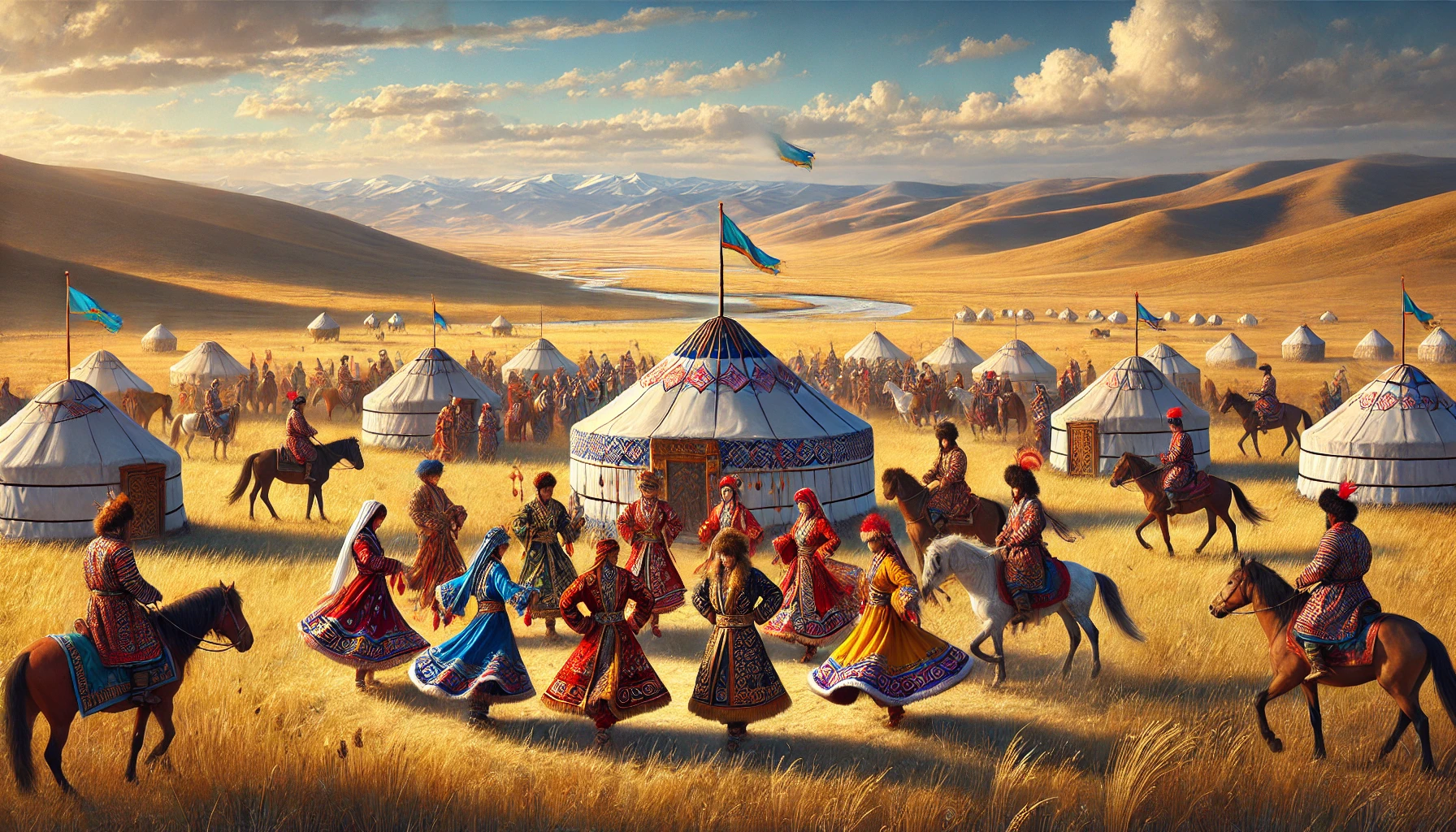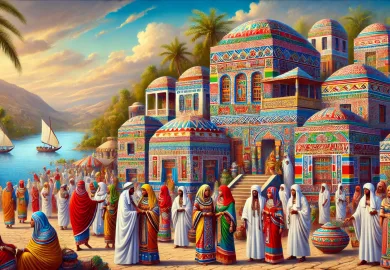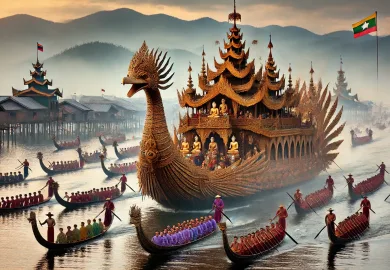
Disclaimer: This content was generated using AI. While I strive for accuracy, I encourage readers to verify important information. I use AI-generated content to increase efficiencies and to provide certain insights, but it may not reflect human expertise or opinions.
The Kazakhs, a proud and resilient people, have carved out a unique place in the tapestry of Central Asia. With a history stretching back to the ancient nomadic tribes of the steppes, the Kazakhs have preserved their traditions and culture through centuries of change. Today, their vibrant heritage is a testament to their adaptability and deep connection to the land they call home. From their nomadic roots to their rich tapestry of customs, the Kazakhs offer a fascinating glimpse into a world where history and modernity blend seamlessly.
The Origins of the Kazakhs: A Legacy of Nomadism
The origins of the Kazakh people are deeply intertwined with the vast, open steppes of Central Asia. Historically, the Kazakhs emerged from various Turkic and Mongol tribes that roamed these lands. Their nomadic lifestyle, characterized by seasonal migrations, was shaped by the need to find pastures for their herds of horses, sheep, and camels. This way of life not only defined their economy but also influenced their social structures, art, and spirituality.
The Kazakhs’ nomadic heritage is evident in their traditional dwellings, known as yurts. These portable, circular tents were perfectly suited to the nomadic lifestyle, offering warmth in the harsh winters and coolness during the hot summers. The yurt is more than just a shelter; it is a symbol of Kazakh identity, reflecting the harmonious relationship between the people and their environment.
The legacy of nomadism continues to influence Kazakh culture today, even as most Kazakhs have transitioned to a more sedentary lifestyle. Festivals like Nauryz, the Kazakh New Year, celebrate the renewal of life and the deep connection to nature that has always been at the heart of Kazakh culture. Traditional games like kokpar, a form of horseback wrestling, and kyz kuu, a horse race where men chase women, are modern-day echoes of the skills that were once vital for survival on the steppes.
Kazakh Traditions and Customs: A Vibrant Cultural Mosaic
Kazakh traditions and customs are a vibrant mosaic that reflects their rich history and diverse influences. One of the most striking aspects of Kazakh culture is its deep respect for elders. Elders are considered the guardians of wisdom and are highly revered within the community. This respect is evident in everyday interactions, where younger people are expected to show deference to their elders, often by greeting them first and offering the best seats at gatherings.
Another key aspect of Kazakh culture is hospitality. The concept of qonaqasy (hospitality) is central to the Kazakh way of life. Guests are treated with the utmost respect and are often offered a meal, regardless of the time of day. The traditional meal often includes beshbarmak, the national dish made of boiled meat (usually lamb or horse) served with noodles and onions. This dish is not just food; it is a symbol of the Kazakh spirit of generosity and community.
Weddings are among the most elaborate and celebrated events in Kazakh culture. These ceremonies are a blend of traditional rituals and modern elements. One of the key rituals is the kiz uzatu, or the farewell to the bride, where the bride’s family bids her goodbye with songs and blessings. The wedding itself is a grand affair, often lasting several days, with a series of rituals that emphasize the importance of family bonds and the continuity of tradition.
Kazakh Language and Literature: The Voice of a Nation
The Kazakh language, a member of the Turkic language family, is a cornerstone of Kazakh identity. It is the medium through which the Kazakhs have preserved their history, traditions, and collective memory. The language, written in the Cyrillic script since the Soviet era, is undergoing a renaissance as efforts are being made to revive its use and promote its status in the face of globalizing influences.
Kazakh literature is rich with oral traditions, including epic poetry, proverbs, and folk tales that have been passed down through generations. One of the most famous literary works is the epic poem “Kyz-Zhibek,” which tells the tragic love story of a young woman named Zhibek and her suitor Tolegen. This epic, like many others in Kazakh folklore, reflects the themes of love, heroism, and the moral values of the Kazakh people.
In the modern era, Kazakh literature has continued to evolve, with writers like Mukhtar Auezov and Olzhas Suleimenov making significant contributions to the cultural landscape. Auezov’s novel “The Path of Abai” is a monumental work that chronicles the life of Abai Kunanbayev, a revered Kazakh poet, philosopher, and educator. Abai’s works, which include poems and philosophical reflections, are considered the embodiment of Kazakh intellectual and cultural life, offering insights into the soul of the Kazakh people.
The Role of Music and Dance in Kazakh Culture
Music and dance hold a special place in Kazakh culture, serving as both a form of artistic expression and a means of preserving historical narratives. Traditional Kazakh music is deeply connected to the natural world and the nomadic lifestyle. Instruments like the dombra, a two-stringed lute, and the kobyz, a bowed instrument, are central to Kazakh musical traditions. The dombra, in particular, is a symbol of Kazakh national identity, and its melodies often evoke the vastness of the steppe and the rhythm of the nomadic life.
One of the most significant genres of Kazakh music is the aitys, a form of oral poetry where two performers engage in a lyrical battle of wits and words. Aitys is not just entertainment; it is a respected art form that requires deep knowledge of Kazakh history, language, and culture. The performers, known as aityskers, often use their verses to comment on social issues, politics, and human relationships, making aitys a powerful medium for social commentary.
Kazakh dance, like its music, is expressive and reflective of the people’s connection to the land. Traditional dances often mimic the movements of animals or the natural environment, celebrating the harmony between humans and nature. These dances are usually performed during festivals, weddings, and other communal gatherings, where they serve to strengthen social bonds and reinforce cultural identity.








